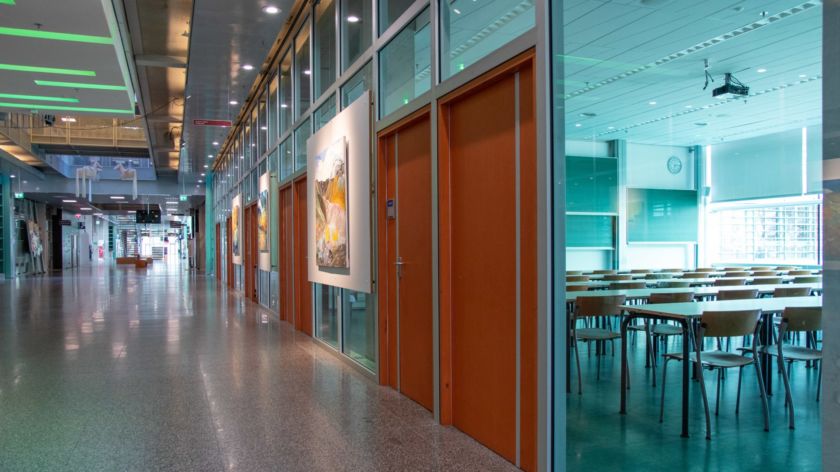University has already spent 0.5 million euros on contract renewals due to COVID-19
-
 Lege campus. Foto: Rein Wieringa
Lege campus. Foto: Rein Wieringa
Faculties have asked the Executive Board for a total of 45 contract extensions related to COVID-19. This amounts to approximately 500,000 euros. That is less than the university had originally budgeted for, but the cost of the medical faculty has not yet been included in the amount.
Early January, PhD candidate Chen Shen had just started the final half year of her promotion at the Centre for Language Studies (CLS) at the Faculty of Arts. Finishing up the final experiments and a lot of writing should make it just about possible for her to complete everything before the end of her contract this summer. But then, COVID-19 hit.
From mid-March, Shen had to work from home, like almost everyone else. And that situation, working and living in a tiny, dark apartment she shared with her boyfriend, was far from ideal, she tells on the phone. ‘A space like that is not meant to work in.’ The result was a considerable delay in her research.
1.1 million euros
There are more researchers like Shen, with temporary contracts, whose research has been delayed this calendar year. To accommodate them, the university has created a special arrangement. Anyone with ‘COVID-19 delay’ and a contract ending in 2020 can expect an extension until the end of this year at the latest. The university covers the costs, provided that it cannot be financed within the project itself – for example through the possible grant provider.
Based on an inventory of the faculties, 45 people are eligible for such an extension, announced the Executive Board through concern controller Suzanne Boelens. The board has approved all the faculty applications, amounting to approximately 500,000 euros. This is less than the 1.1 million that the university could allocate on the basis of collective agreements.
I was in Guangzhou in January, to celebrate the Chinese New Year
All applications relate to scientific staff, in particular PhD candidates; 22 of them are women, 23 men. The numbers may increase because the medical faculty still has to supply its figures. Boelens: ‘We expect that this faculty has relatively many PhD candidates who were delayed due to the pandemic.’

Home quarantine
The reasons for delay vary per person. Some researchers were delayed because the labs were closed, others because of care duties or a loss of concentration due to working at home, as was the case for CLS PhD candidate Shen. In addition to her cramped home office, the situation in her native China was not good for her productivity. ‘Many relatives live there, and I was very concerned about them, especially in the beginning. I was in Guangzhou in January, to celebrate the Chinese New Year. I was therefore very close to the pandemic, even before the virus reached Europe.’ As a precaution, she went into home quarantine for two weeks after her return to the Netherlands, even though back then, this was not mandatory.
For all these reasons, her contract has now been extended until mid-December. ‘It was such a relief when I heard that my request for an extension was approved. I hadn’t really had any peace of mind since January.’



